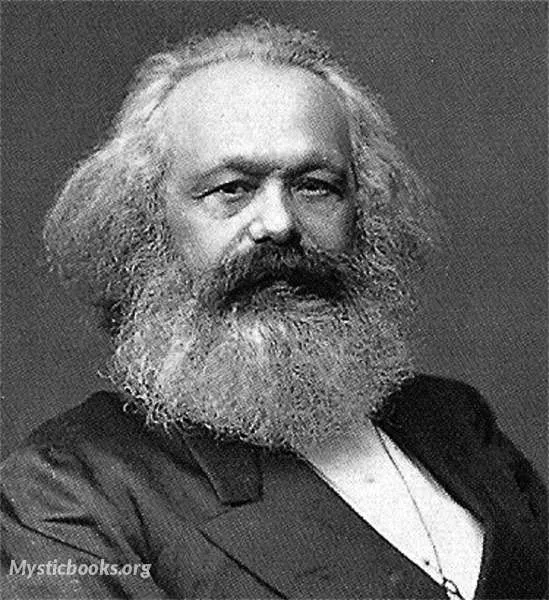
Timeline
Title
Country/Nationality
Karl Marx
Karl Heinrich Marx was a German philosopher, economist, historian, sociologist, political theorist, journalist and socialist revolutionary.
Due to his political publications, Marx became stateless and lived in exile with his wife and children in London for decades, where he continued to develop his thought in collaboration with German thinker Friedrich Engels and publish his writings, researching in the reading room of the British Museum. His best-known titles are the 1848 pamphlet The Communist Manifesto and the three-volume Das Kapital (1867–1883). Marx's political and philosophical thought had enormous influence on subsequent intellectual, economic and political history. His name has been used as an adjective, a noun, and a school of social theory.
Marx's critical theories about society, economics, and politics, collectively understood as Marxism, hold that human societies develop through class conflict. In the capitalist mode of production, this manifests itself in the conflict between the ruling classes (known as the bourgeoisie) that control the means of production and the working classes (known as the proletariat) that enable these means by selling their labour-power in return for wages. Employing a critical approach known as historical materialism, Marx predicted that capitalism produced internal tensions like previous socioeconomic systems and that those would lead to its self-destruction and replacement by a new system known as the socialist mode of production. For Marx, class antagonisms under capitalism, owing in part to its instability and crisis-prone nature, would eventuate the working class' development of class consciousness, leading to their conquest of political power and eventually the establishment of a classless, communist society constituted by a free association of producers. Marx actively pressed for its implementation, arguing that the working class should carry out organised proletarian revolutionary action to topple capitalism and bring about socio-economic emancipation.
Marx has been described as one of the most influential figures in human history and his work has been both lauded and criticised. His work in economics laid the basis for much of the current understanding of labour and its relation to capital and subsequent economic thought. Many intellectuals, labour unions, artists and political parties worldwide have been influenced by Marx's work, with many modifying or adapting his ideas. Marx is typically cited as one of the principal architects of modern social science.
Born in Trier, Germany, Marx studied law and philosophy at university. He married Jenny von Westphalen in 1843. Marx and von Westphalen had seven children together, but partly owing to the poor conditions in which they lived whilst in London, only three survived to adulthood.
Although Marx had drunk alcohol before he joined the Trier Tavern Club drinking society, after he had joined the club he began to drink more heavily and continued to do so throughout his whole life.
Following the death of his wife Jenny in December 1881, Marx developed a catarrh that kept him in ill health for the last 15 months of his life. It eventually brought on the bronchitis and pleurisy that killed him in London on 14 March 1883, when he died a stateless person at age 64. Family and friends in London buried his body in Highgate Cemetery (East), London, on 17 March 1883 in an area reserved for agnostics and atheists (George Eliot's grave is nearby).
Books by Karl Marx
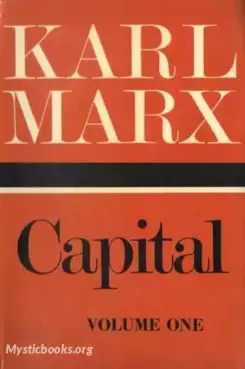
Capital: A Critical Analysis of Capitalist Production
Karl Marx’s Capital: A Critical Analysis of Capitalist Production is a critical analysis of the political economy or the capitalist system. In this 3 volume work, he says that a capitalist economy can only survive by exploiting the working class. The...
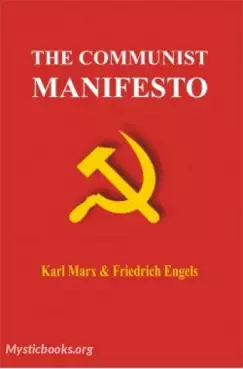
The Communist Manifesto
The Communist Manifesto was conceived as an outline of the basic beliefs of the Communist movement. The authors believed that the European Powers were universally afraid of the nascent movement, and were condemning as "communist," people or activitie...
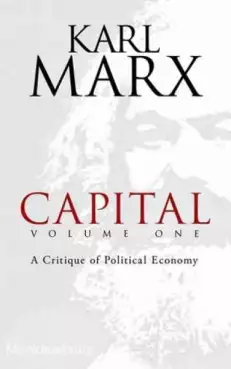
Das Kapital, Capital: Critique of Political Economy
Das Kapital, also known as Capital: A Critique of Political Economy is a foundational theoretical text in materialist philosophy, economics and politics by Karl Marx. Marx aimed to reveal the economic patterns underpinning the capitalist mode of prod...

Wage-Labour and Capital
"Wage Labour and Capital" is an 1847 economics essay by Karl Marx, first published in articles in the Neue Rheinische Zeitung in April 1849. It is widely considered the precursor to Marx’s influential treatise Das Kapital. It is commonly paired with...
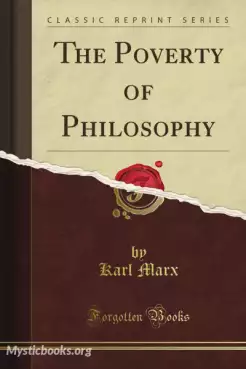
The Poverty of Philosophy
This work is a scathing criticism of the economic and philosophical arguments of Pierre-Joseph Proudhon's The Philosophy of Poverty.
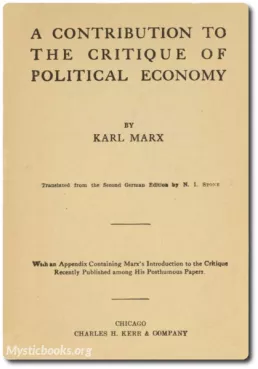
A Contribution to the Critique of Political Economy
The book is a critical analysis of the capitalist system and the economic theories that support it. Marx examines the relationships between labor, capital, and production, and argues that capitalism is inherently exploitative and unsustainable. He pr...

Manifest der Kommunistischen Partei
Karl Marx und Friedrich Engels schrieben ihr Manifest im Dezember 1847, als Leitfaden fuer die grundsaetzlichen Prinzipien und Praktiken des Kommunismus. Das Manifest sagte ausserdem den Untergang des Kapitalistismus’ voraus.(Zusammenfassung von Gesi...
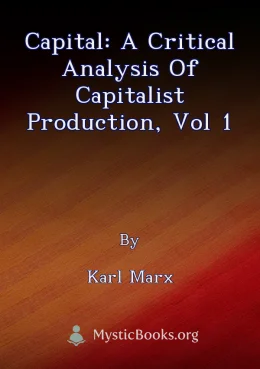
Capital: a critical analysis of capitalist production, Vol 1
Capital, Volume I is the first of three volumes in Karl Marx’s monumental work, Das Kapital, and the only volume to be published during his lifetime, in 1867.Marx’s aim in Capital, Volume I is to uncover and explain the laws specific to the capitalis...

Eleven Theses on Feuerbach
The “Theses on Feuerbach” are eleven short philosophical notes written by Karl Marx in 1845. They outline a critique of the ideas of Marx’s fellow Young Hegelian philosopher Ludwig Feuerbach. The theses form a basis for the activism emphasised by Mar...
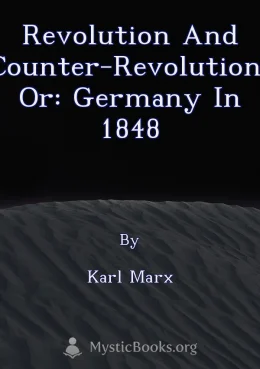
Revolution and Counter-Revolution, or: Germany in 1848
Karl Marx's *Revolution and Counter-Revolution* examines the tumultuous year of 1848 in Germany. Through a critical lens, Marx analyzes the uprisings and political movements that swept across Prussia, Austria, and other German states. He explores the...
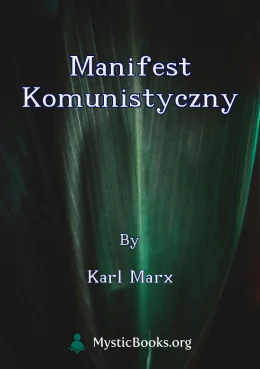
Manifest Komunistyczny
Manifest Komunistyczny jest traktatem politycznym napisanym przez Karla Marxa i Friedricha Engelsa, w którym przedstawiono ich teorię komunizmu. Autorzy krytykują system kapitalistyczny, ukazując go jako system oparty na eksploatacji i nierówności sp...